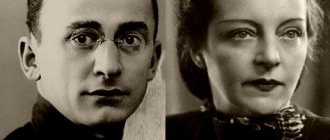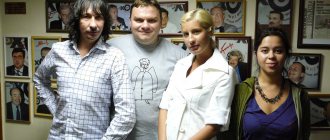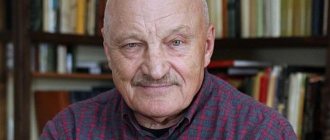Childhood and youth
Sergo Lavrentievich Beria (Gegechkori) was born on November 24, 1924 in Tbilisi. Some sources preserve information that at birth he was given a different name - Otar, but soon his father changed his mind and named him in honor of family friend Sergo Ordzhonikidze.
Sergo Beria and his father Lavrenty Beria
After finishing the seven-year school in 1938, he and his parents Lavrentiy Beria and Nino Taimurazovna moved to Moscow. As a child, the boy was interested in music and actively studied foreign languages - in addition to German and English, he learned Dutch, Japanese and French and subsequently spoke many of them fluently.
The family's move to the capital was forced. Lavrentiy Beria received the position of First Deputy People's Commissar of Internal Affairs - according to Stalin's promise, for only a couple of years, and then he would allegedly be allowed to return to his native Georgia.
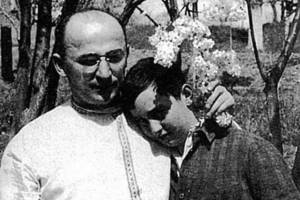
Lavrenty and Sergo Beria
Beria arrived alone, which angered the leader, and soon the rest of the family members were taken to the capital by force. The head of the security, Vlasik, received the order to “bring to Moscow everything living that is in Beria’s family,” which he carried out with meticulous precision, delivering to the new address not only his wife and son, but also grandmothers, a deaf-mute aunt and 2 cats.
Sergo Lavrentievich settled with his family in a mansion on Mikheevskaya Street and went to Moscow school No. 175. After finishing 10 classes, the young man went to work at the Central Radio Engineering Laboratory of the NKVD.
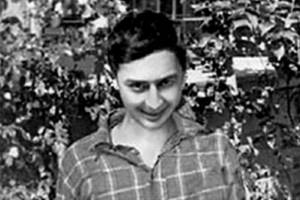
Sergo Beria in his youth
When the war began, the leadership of the Komsomol district committee gave Sergo recommendations for admission to intelligence school. There, in 3 months, he mastered the specialty of radio engineering and went into active service with the rank of lieutenant. Soon the young officer was responsible for carrying out several important tasks, for example, participating in operations in Kurdistan and Iran.
A year later, Sergo Beria returned to Moscow and became a student at the Military Academy of Communications, which did not prevent the military authorities from calling him from time to time for other secret assignments. For his responsible service, the young man was awarded the Order of the Red Star and the medal “For the Defense of the Caucasus.” During his senior year, Sergo developed a graduation project for a rocket control system, which the commission rated as excellent and recommended for implementation.
The science
In 1947, Beria, having graduated from the institute, received a position as deputy chief designer of the SB No. 1 MV bureau. His training achievements were put into action: based on the drawings, a group of specialists created the S-25 Berkut anti-aircraft missile system.
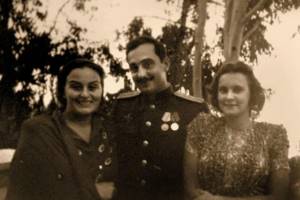
Nino Beria, Sergo Beria and Marfa Peshkova
The bureau was an institution that worked in the strictest secrecy: employees were delivered and taken away on special buses, conversations on them, as well as movement along the corridors during working hours, were prohibited, and specialists had special passes and were considered a “special contingent.” The name itself, according to rumors, received an ironic decoding - “SB - “son of Beria””, but there were few who wanted to repeat this joke publicly.
Over the years of work in the organization, Sergo Lavrentievich created a project for a new weapon - the Comet system, for which he received the Stalin Prize and the Order of Lenin. In 1948 he defended his candidate's dissertation, and in 1952 - his doctorate.
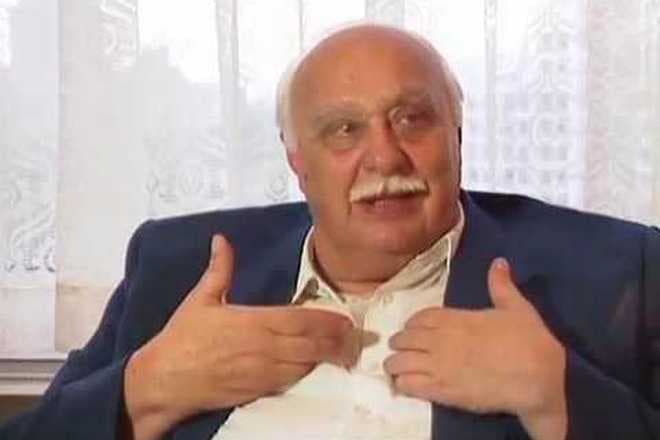
Sergo Beria
After Stalin's death, the scientist, along with other associates of the leader, fell into disgrace. Sergo and his mother were locked up in a dacha near Moscow and then arrested. Beria's son met 1954 in a solitary cell in Butyrka prison - he was charged with organizing a counter-revolutionary conspiracy aimed at overthrowing Soviet power and reconstructing capitalism.
Soon the Central Committee of the CPSU issued a resolution depriving Sergo Lavrentievich of the title of Stalin Prize laureate, scientific and military ranks (by the time of his arrest he had risen to the rank of colonel). At the meeting of the Higher Attestation Commission it was announced that both dissertations do not contain the personal achievements of the scientist, but are the fruit of the joint work of a group of other engineers and calculations.
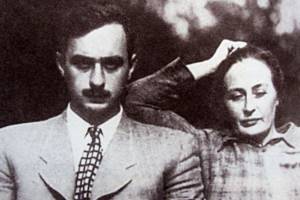
Sergo Beria and his mother Nino
In November 1954, Sergo Beria was sent into administrative exile, however, retaining the opportunity to work in the military defense specialty. He and Nino Taimurazovna were given documents under the name Gegechkori (mother’s maiden name) in order to hide their relationship with Stalin’s accomplice. Sergo settled in Sverdlovsk and for the next 10 years worked as a senior engineer at a research institute under the close supervision of investigative authorities.
In 1964, Sergo’s mother became seriously ill, and he, who by that time had again become a prominent scientist, was allowed to move to Kyiv. There Beria went to work at the organization now known as the State Enterprise Research Institute "Kvant", where he stayed until 1988. Later, the Academy of Sciences of the Ukrainian SSR invited him to the position of chief designer in the Department of New Physical Problems.
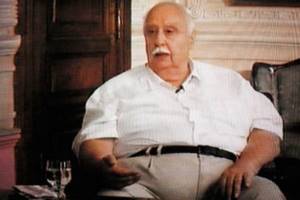
Sergo Beria
Beria's son was repeatedly offered to leave the country, but he never took advantage of any opportunity, considering this a betrayal of his father's memory. In addition, Sergo preferred to serve his native country, and never associated himself with the ruling elite.
In 1990-1999, Sergo Lavrentievich was the scientific director and chief designer of the Kyiv Research Institute "Kometa". During perestroika, as part of conversion projects, he created new materials for oil and gas pipelines and fuel tanks. It was from this organization that he was taken into retirement.
Personal life
In Beria’s biography there is only one marriage - with Marfa Maksimovna Peshkova, the granddaughter of Maxim Gorky. Judging by the surviving photographs, in their youth they were a beautiful couple: both tall, with delicate features, and their children were also very good-looking.
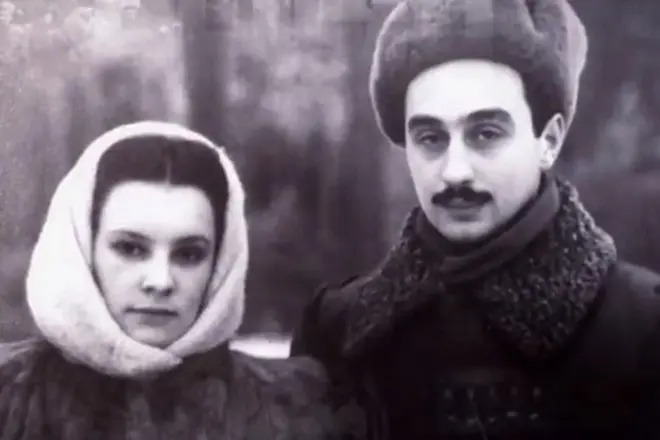
Sergo Beria and his wife Marfa Peshkova
The marriage was preceded by a serious passion. Sergo Beria became the first love of Stalin’s daughter, Svetlana Alliluyeva. They studied at the same school, and the tall, slender brunette won the heart of the young girl. The parents reacted differently to what was happening: according to rumors, Stalin was not against their union, and Beria was very wary of being so closely associated with a high-ranking family and advised his son to stay away from Alliluyeva.
To the relief of his father, Sergo’s youthful love quickly cooled down, and he chose another wife - the beautiful Marfa, but Svetlana was still worried about the failed relationship for a long time. While married, she even tried to divorce him from his wife, but by that time she no longer caused Sergo any feelings other than irritation.
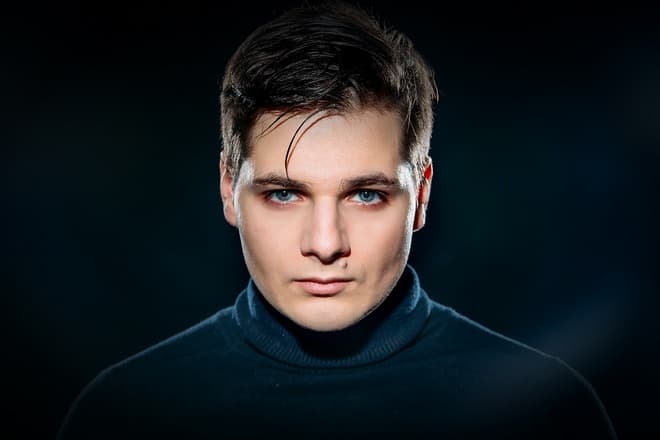
Karen Galstyan played Sergo Beria in the series “Svetlana”
This story is shown in the series “Svetlana”, released in 2021. The film focuses on the life of the chief's daughter and her love interests. Young Beria was played by Karen Galstyan.
Marfa Peshkova gave birth to three children to the scientist - a son, Sergei, and daughters, Nina and Nadezhda. When Sergo Lavrentievich was in exile in Sverdlovsk, his wife filed for divorce. According to her, the reason was her husband’s infidelity.
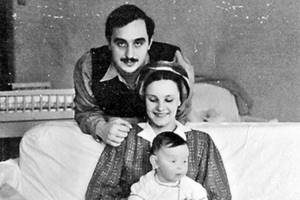
Sergo Beria and Marfa Peshkova with their daughter Nina
Later, the grown-up son moved to his father in Kyiv. Now Sergei is married and works as a radio electronics engineer. The eldest daughter Nina is an artist, graduated from the Stroganov School and moved to Finland to join her husband. Nadezhda became an art critic and lives in Moscow.
Sergo spoke respectfully about his father all his life. He reluctantly renounced the name Beria and returned it at the first opportunity. According to his son’s recollections, Lavrenty Beria was a multi-talented person: he was fond of architecture and drew beautifully, passing on his hobbies to Sergo. He treated children with love and gentleness, trying to instill in them hard work and independence.
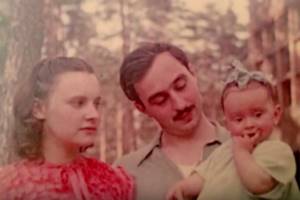
Sergo Beria and Marfa Peshkova with their daughter Nina
The son was especially indignant at the propaganda-created image of Beria as a rapist, dissolute and cruel to women. He did not deny Lavrenty Pavlovich’s extramarital hobbies - he sometimes shared details of his personal life with his adult son, but did not seek to condemn them.
“Father was not without sin,” Sergo said in an interview. “But which man has not allowed himself such weakness at least once in his life?” He assessed other aspects of his parent’s activities just as gently: “Those who accused him of all earthly sins, the same Khrushchev, for example, have much more sins.”
Until the end of his life he fought to restore his father's good name. Sergo wrote the book “My Father - Lavrentiy Beria” in the genre of memoirs, where he not only recalls warm moments associated with his family, but also reveals some previously unknown pages of Russian history. Later, 2 sequels were released: “The son is responsible for the father” and “In the corridors of Stalin’s power.”
Family life
The family, however, never left for Belgium. The couple lived in Georgia, then moved to Moscow. There Nino Beria began working at the Timiryazev Academy. The husband became one of Joseph Stalin's closest circle of confidants, dealing with industrial safety issues.
“Vulgarity is about the obvious with pathos”: Andrei Myagkov about art and life
Which white shirts should you get rid of before spring: in 2021 they are no longer in fashion
Russian women are deprived of maternity capital: how they do it and how to prevent it
Nino often became the object of envy on the part of other “Kremlin wives”, thanks to her amazing beauty, intelligence, tact, grace and style. But soon there was no reason for envy: alarming changes came in the life of the family.
Death
Sergei Beria died at the age of 75 in Kyiv on November 11, 2000. Despite his achievements in the field of the military industry, most Russian media ignored this event.
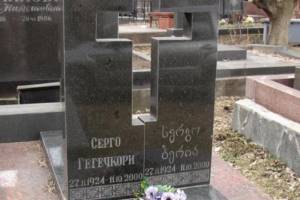
Sergo Beria's grave
The cause of death is believed to be heart disease. The grave of the famous designer is located at the Baikovo cemetery.
Leonid Khrushchev
The man who debunked Stalin's personality cult had 6 children. The most famous of them was their son Leonid.
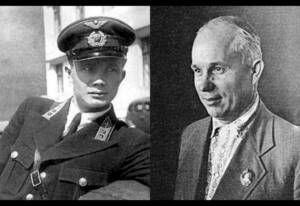
The descendant of the future general secretary began his career by working in a factory. In 1939, during the Russian-Finnish War, he volunteered to go to the front as a bomber pilot. In 1941, when Hitler's army attacked the Soviet Union, Nikita Khrushchev's son again decided to defend his homeland. However, Leonid was seriously injured. A year later, despite his injured leg, he went to the front as a fighter pilot.
How much did Russia spend on gifts on Valentine's Day?
Those who have been in contact with others while sick with COVID may be prosecuted
Al Capone's "moonshine distillery" found in America - it's over 100 years old
According to the memoirs of Leonid’s sister, his brother was forced to go to war as punishment. They say that in 1942, Khrushchev's son, while drunk, shot and killed a sailor. A year later, Leonid went on a combat mission and went missing. According to the official version, Khrushchev’s son was shot by the Nazis. However, those who adhere to the conspiracy theory say that Leonid was killed by Stalin's supporters.

